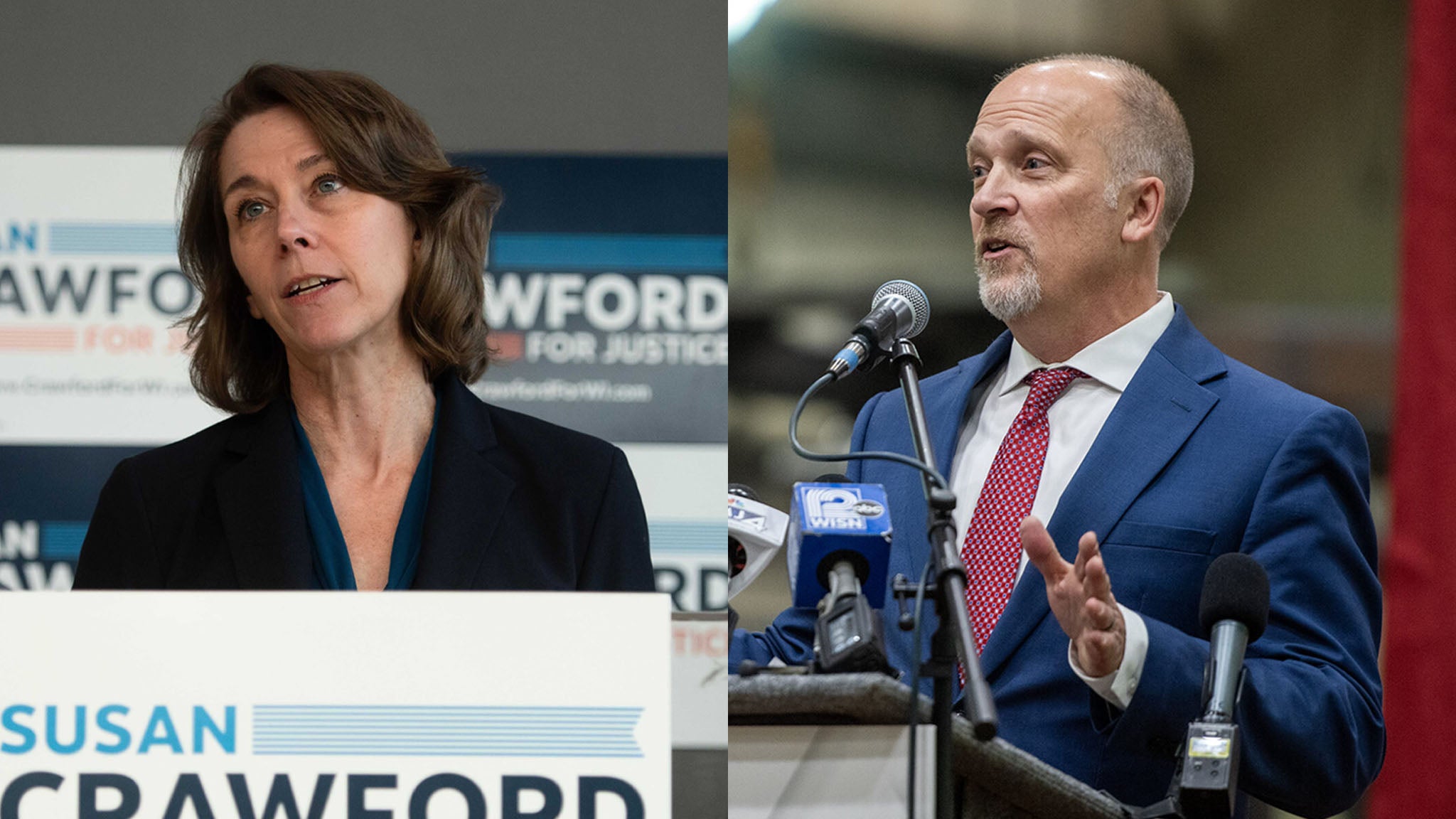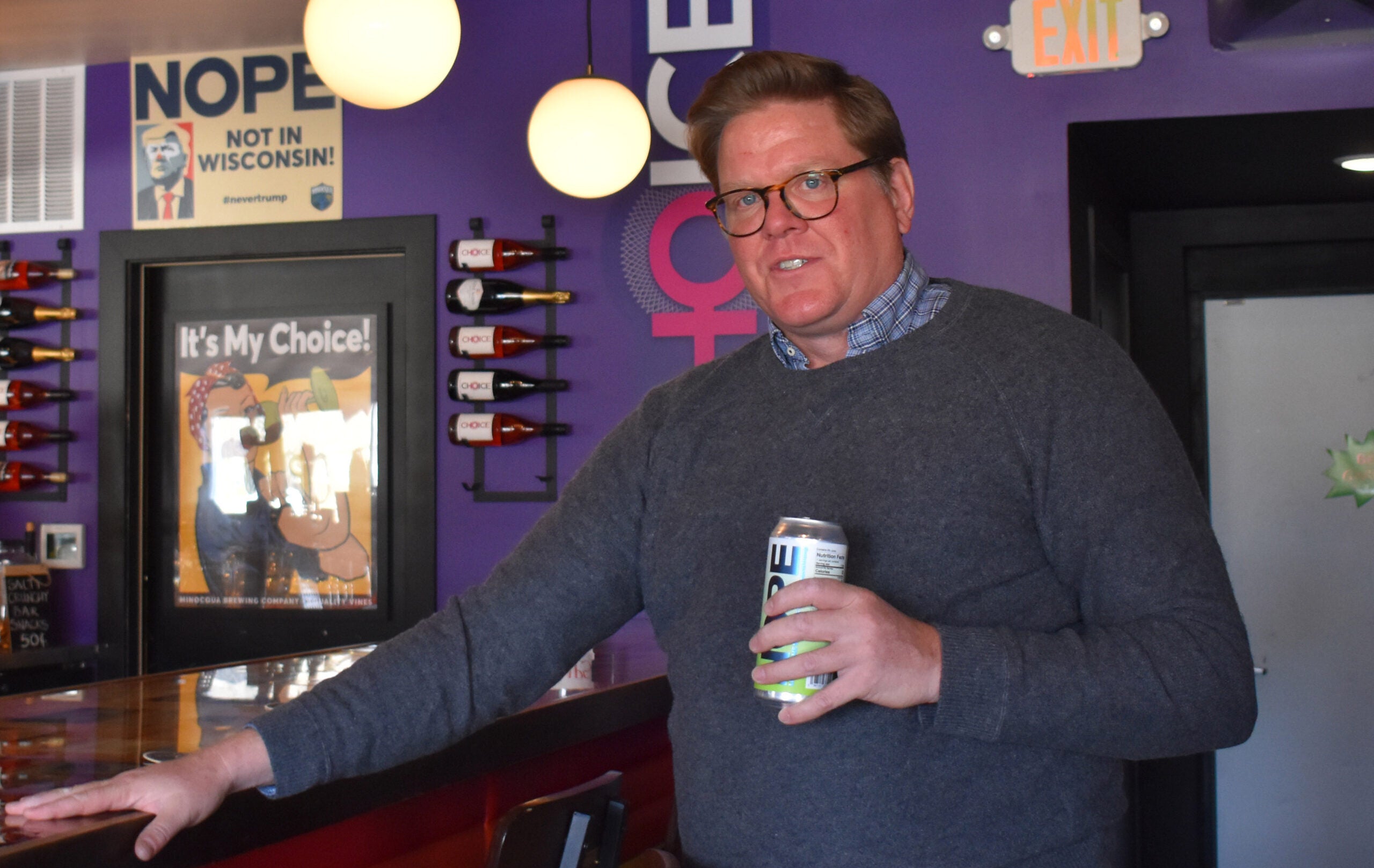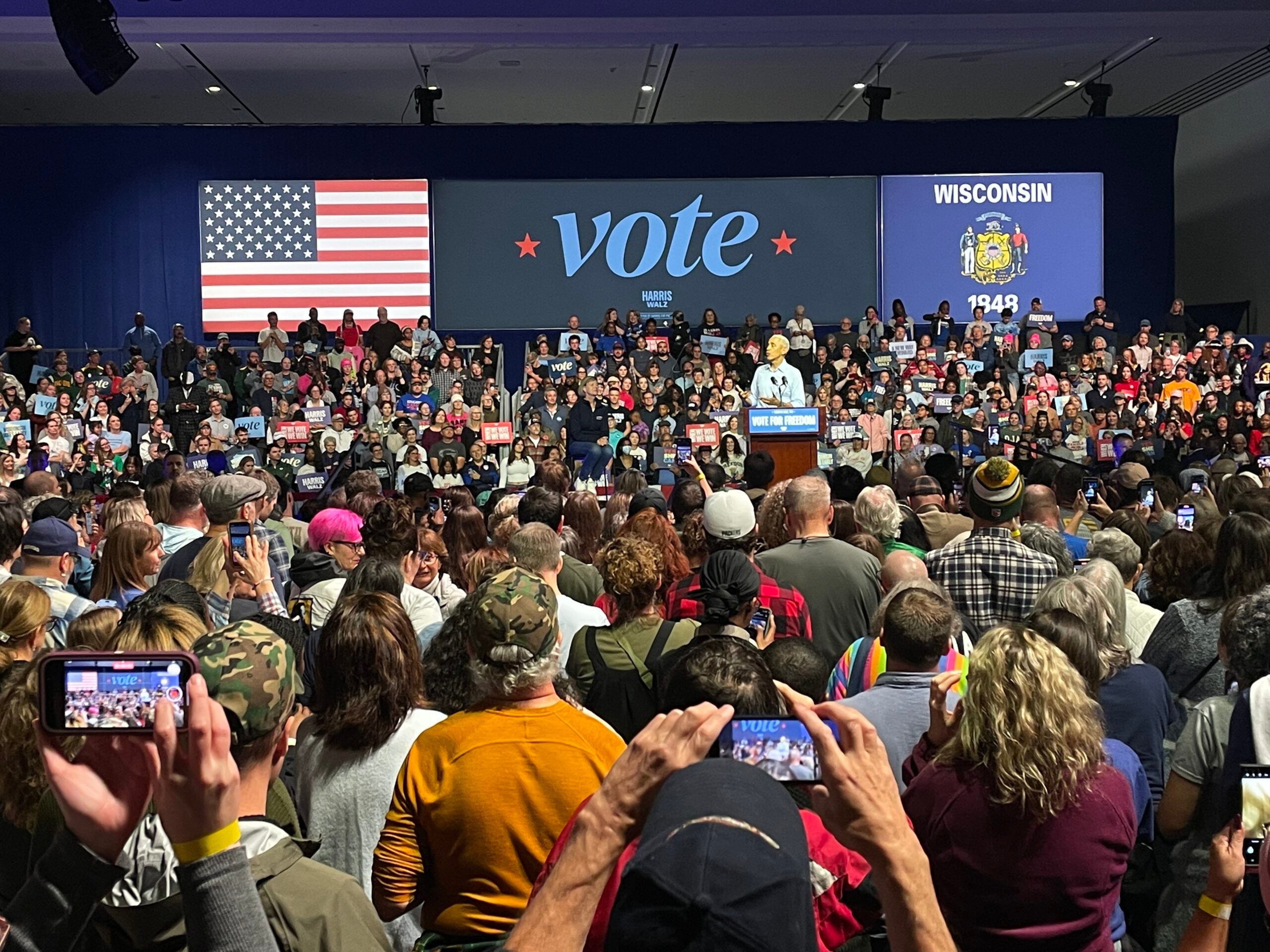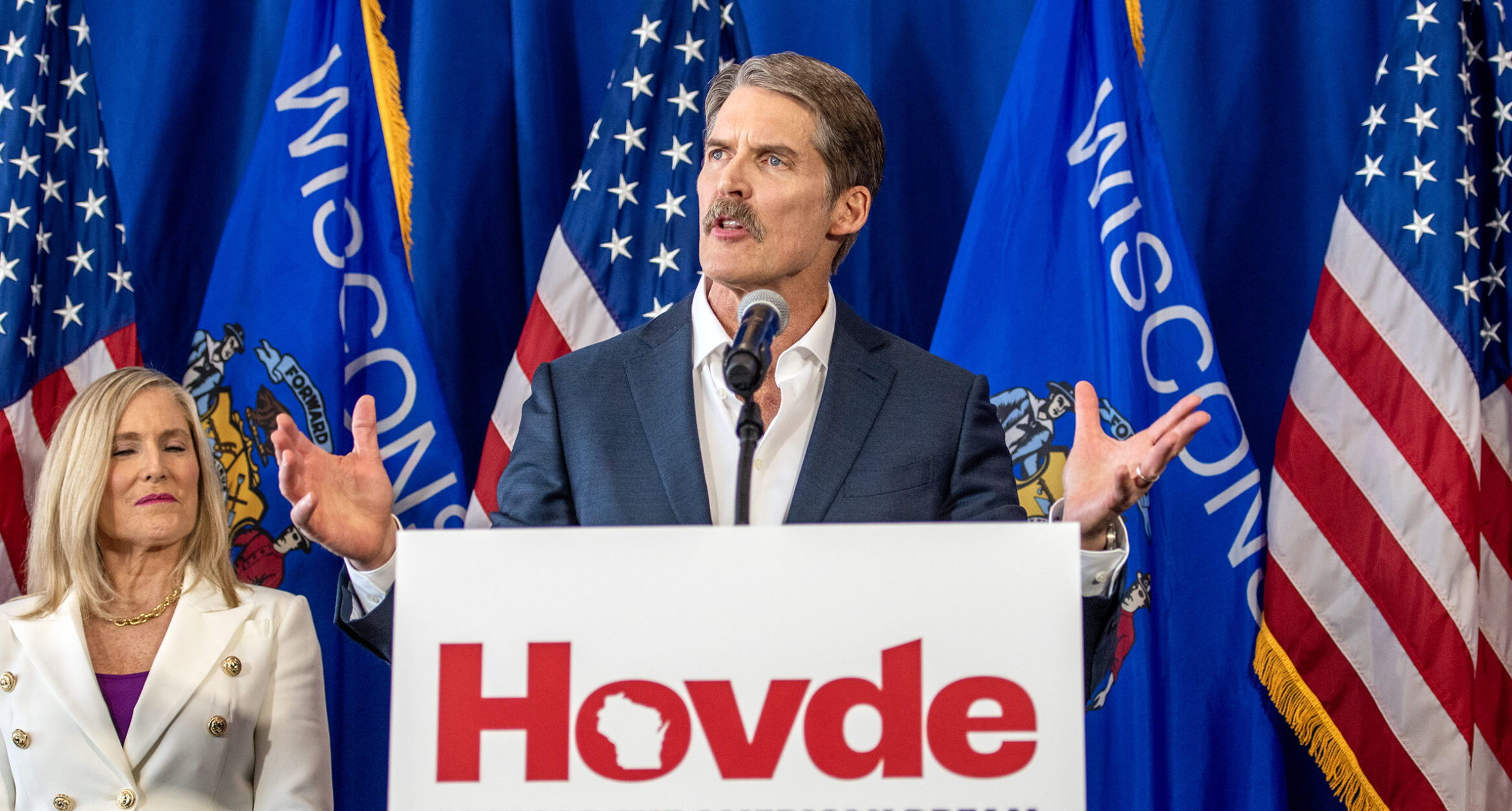When it comes to the influence of money in elections, former U.S. Sen. Russ Feingold is among the most outspoken in American politics — and the most prominent voice on the issue in Wisconsin.
That stance hasn’t changed in the Middleton Democrat’s 2016 rematch against Republican incumbent Sen. Ron Johnson. When announcing his campaign in May, Feingold said, “People tell me all the time that our politics in Washington are broken, and that multimillionaires, billionaires, and big corporations are calling all the shots.”
Johnson recently criticized Feingold for launching Progressives United. That’s a political action committee Feingold formed shortly after losing the Senate seat to Johnson in 2010.
Stay informed on the latest news
Sign up for WPR’s email newsletter.
The conversation about the PAC’s track record opened on a rough note earlier this summer, when the Milwaukee Journal Sentinel reported that Progressives United spent far less on contributions to political candidates than it did on overhead, including salaries for Feingold and several close associates.
That said, it’s worth taking a look at how Progressives United spent its money on direct donations to candidates and other PACs. Data from Federal Elections Commission filings, also available in more accessible form through OpenSecrets.org, shows that Progressives United donated to 46 candidates for federal office, along with 21 PACs and political parties during the 2012, 2014 and 2016 election cycles. None of the checks that Progressives United cut were eye-poppingly large in today’s campaign-finance landscape — the vast majority of the contributions were in amounts of $2,500 or $5,000. All but two of the donations to candidates were to Democrats running for the House or Senate.
The exceptions? Two donations totaling $6,000 to U.S. Sen. Bernie Sanders of Vermont, who serves as an independent in the Senate and is currently seeking the Democratic Party’s nomination for president. One donation of $5,000 was made for Sanders’ 2012 re-election campaign for the Senate, while another donation of $1,000 was made in January 2015.
Another well-known elected official supported by Progressives United is U.S. Sen. Elizabeth Warren of Massachusetts, who has received a total of $9,460. The single candidate who received the most money from the PAC was U.S. Sen. Sherrod Brown, an Ohio Democrat known for joining with Warren to combat the proposed Trans-Pacific Partnership trade deal. Brown received a total of $12,500 from the PAC.
But despite its name, the PAC is by no means focused exclusively on prominent progressives. In 2012, Progressives United gave $7,500 to help U.S. Sen. Jon Tester of Montana, who narrowly won re-election. This contributions speaks more to strategy than to ideology: In the 2012 election, Tester was one of several Democrats the National Republican Senatorial Committee targeted in hopes of securing a Republican Senate majority. Tester has described himself as a moderate, and has at times aligned himself with Republicans on multiple issues, including gun control and immigration. While Warren and Sanders are known for their fiery speeches aimed at Wall Street and occasionally even fellow Democrats, Tester works to emphasize a reputation as a blue-collar farmer whose most colorful feature is that he lost three fingers in a childhood meat-grinder accident.
The vast majority of candidates who received Progressives United money won election or re-election. When supporting Wisconsin Democrats, though, the PAC had a less successful record.
Progressives United gave $7,500 to U.S. Sen. Tammy Baldwin’s winning 2012 campaign for the Senate, as well as a total of $10,000 to Madison-based U.S. Rep. Mark Pocan, who won a House seat in southern Wisconsin’s solidly Democratic 2nd District in 2012 and was re-elected in 2014. But it also spent about $26,000 on four losing Wisconsin congressional candidates, including a $5,000 donation for Rob Zerban’s unsuccessful 2012 bid to unseat Republican incumbent (and then-vice-presidential candidate) Rep. Paul Ryan in southeastern Wisconsin’s 1st District.
Beyond candidates, nearly all of the PAC’s giving was to national- and state-level Democratic Party organizations. The biggest recipient of Progressives United money was the Democratic Party of Wisconsin at $15,064, followed closely by the national Democratic Senatorial Campaign Committee at $15,000.
In an Aug. 28 interview on Wisconsin Public Television’s “Here And Now,” Johnson accused Feingold of setting up Progressives United as a “shadow campaign” to retake the Senate seat.
“He honestly started plotting to get his seat back almost the day after the (2010) election,” Johnson told “Here And Now.” In the interview, Johnson blamed the role of outside money flowing in the Senate race on Feingold’s decision to establish Progressives United in 2011.
“The horse has already left that barn,” Johnson said when asked about Feingold urging him to sign a “Badger Pledge” regarding outside political groups’ involvement in the race. “If he was really concerned about outside money, he wouldn’t have set up that PAC.”
In a separate “Here And Now” interview that aired alongside Johnson’s, Feingold defended his recent decision to walk back his pledge to raise the majority of his campaign money from Wisconsinites.
“My original pledge in 1992 was based on the law at the time,” Feingold told “Here And Now.” “What happened in 2009 is the Supreme Court changed all the rules that that was based on,” he added, referring to the Citizens United vs. FEC ruling that struck down portions of the campaign-finance reform bill Feingold co-authored with Republican U.S. Sen. John McCain.
One week earlier, in an interview with Wisconsin Public Radio’s “Central Time,” Feingold also spoke extensively about the changing policies and political terrain around campaign finance.
Feingold has faced the issue all summer since announcing his candidacy in May. In June, his campaign told the Journal Sentinel that Progressives United’s political activity shouldn’t be measured in terms of contributions alone, but also in terms of other support activities, including online promotions that encouraged voters to make their own donations to candidates. Feingold himself defended the PAC in a July interview with Madison community radio station WORT. He called it “a very effective organization in taking on the results of this really crazy decision by the Supreme Court in Citizens United that unleashed corporate money all over our political system in a way that’s never been seen.”
Editor’s note: A previous version of this story erroneously reported that Progressives United donated $1,000 to Bernie Sanders’ presidential campaign. A filing with the FEC in fact lists this as a donation to Sanders’ campaign for Senate. The reference has been corrected in the text and in the data visualization of the PAC’s contributions to candidates.
This report was produced in a partnership between Wisconsin Public Radio, PBS Wisconsin and the University of Wisconsin Cooperative Extension. @ Copyright 2025, Board of Regents of the University of Wisconsin System and Wisconsin Educational Communications Board.




